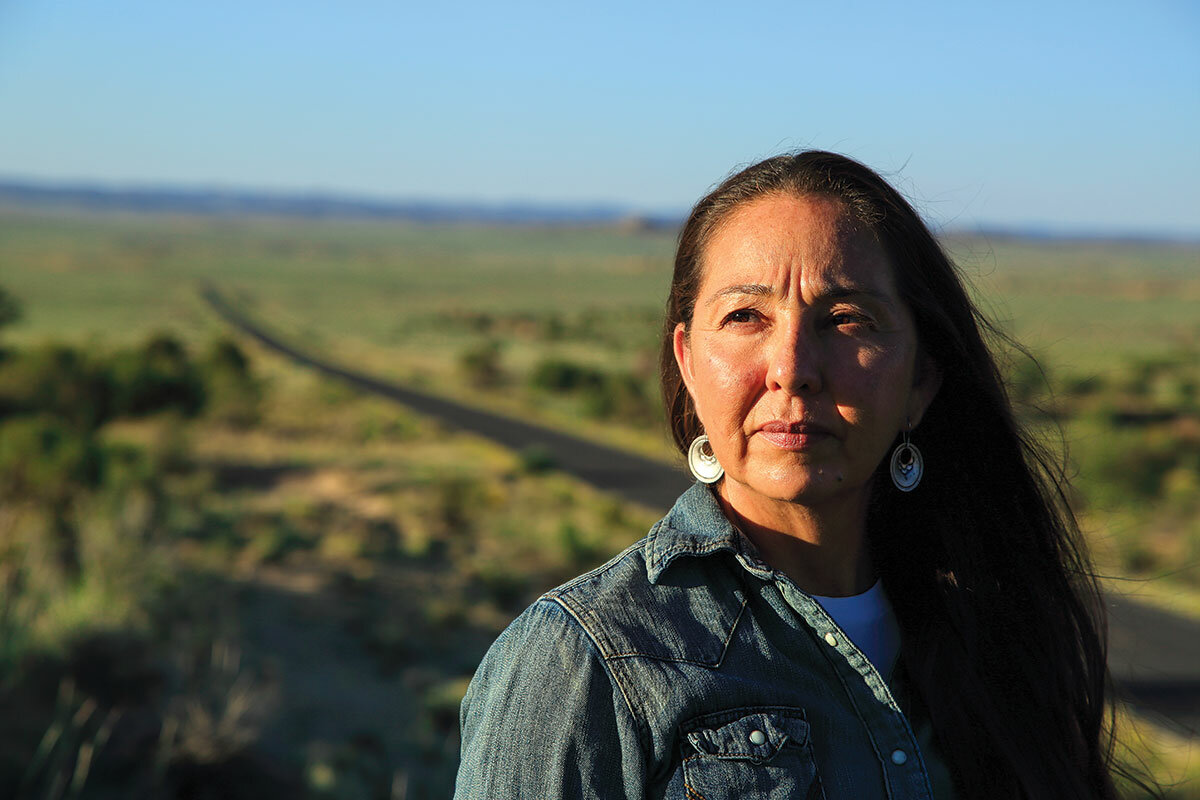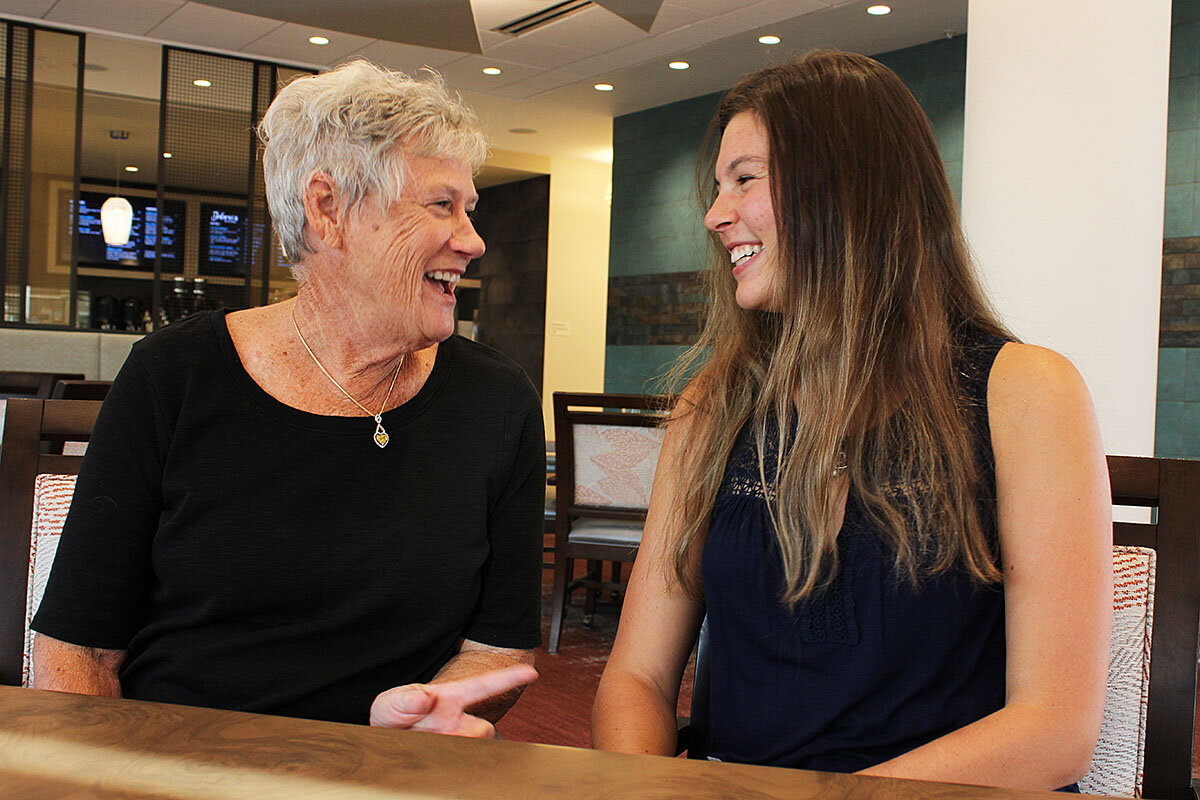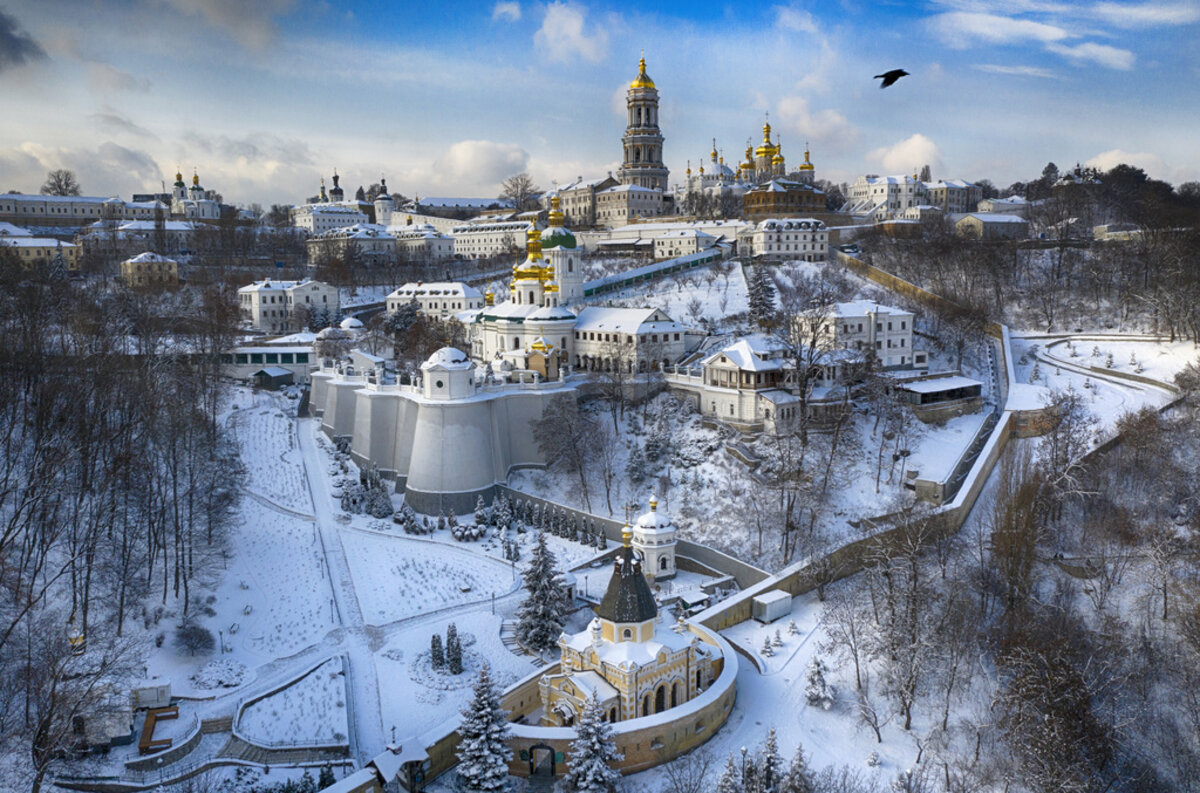Dozens of high-profile retail thefts across the United States are raising questions as prosecutors seek to balance criminal justice reform and combating modern-day organized crime.
Monitor Daily Podcast
- Follow us:
- Apple Podcasts
- Spotify
- RSS Feed
- Download
 Noelle Swan
Noelle Swan
A key tenet of journalism is “to give voice to the voiceless.” It’s an ideal meant to empower the powerless. But that framing takes a narrow view of power as something that must be bestowed by others and assumes that those who have been marginalized lack voices of their own.
One of today’s stories particularly embraces the spirit of that covenant but takes a different approach by amplifying the voices of five Native women. Nicole Horseherder, Kendra Pinto, Allie Redhorse Young, Charlaine Tso, and Jasmine Blackwater-Nygren represent a community that is traditionally unheard in mainstream American media and public discourse. But they are powerful, building strength from their own experiences and communities.
Our story features a series of photographic and literary portraits of each of these women, all members of Navajo Nation.
These aren’t your typical journalistic profiles, which tend to rely on the perceptions of others to flesh out the complexities that make up an individual. Instead, photojournalist Randall Hyman drove hundreds of miles across the largest Native American reservation in the United States to interview and photograph these women as they choose to present themselves. Our story focuses on their work, not to bolster their causes, but to illustrate their determination, leadership, and fortitude.
So much news coverage of Native women comes after they have suffered terrible violence. As journalists, we have an obligation to expose injustices. But at the Monitor we take equally seriously our duty to shed light on the full tapestry of humanity. When we choose to see each other as vibrant, thoughtful individuals, it becomes clear just how interwoven our threads really are.
In that spirit I invite you to spend some time getting to know these five dedicated, resourceful, and accomplished women.
I’ll let them speak for themselves.









